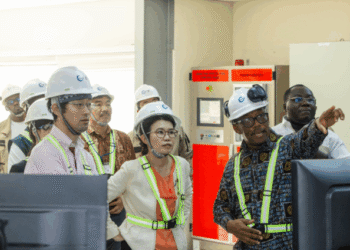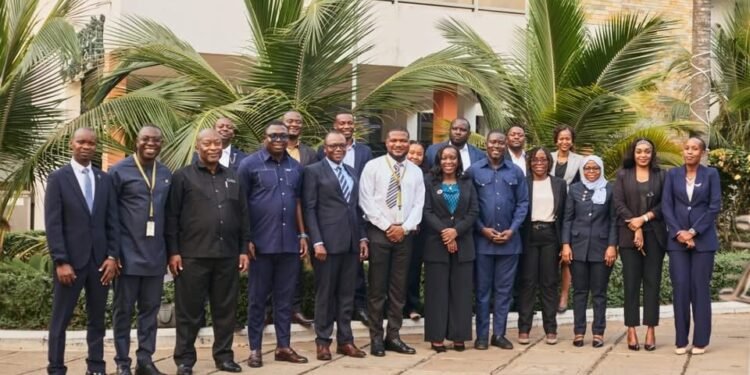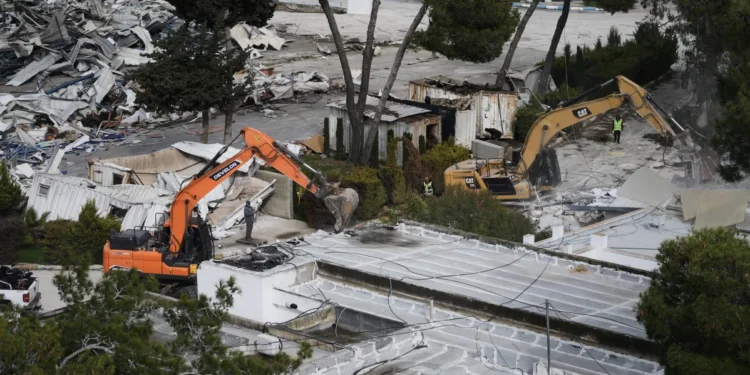NJ Ayuk, Executive Chairman of the African Energy Chamber, has stressed the importance of protecting investments through fiscal stability clauses in Namibia’s petroleum contracts.
The world is watching Namibia with increasing anticipation. Following major hydrocarbon discoveries by Rhino Resources, Galp Energia, Shell, and TotalEnergies in Namibia’s offshore Orange Basin, the country’s energy sector has captured the attention of global investors.
“For Namibia, a newcomer to oil and gas deals, adding a fiscal stability clause to petroleum contracts will be key to retaining the energy industry’s intense interest.”
NJ Ayuk, Executive Chairman of the AEC
A fiscal stability clause—or economic rebalancing clause—is essential. These clauses protect investors from negative financial impacts caused by regulatory changes after contracts are signed, such as new tax requirements or additional operational costs from new labor or environmental laws.
For instance, if Namibia introduces new tax, a fiscal stability clause would exempt contracting companies or compensate them for added costs.
“Fiscal stability clauses enhance certainty and predictability, which are key ingredients for the success of long-term investment projects.”
NJ Ayuk, Executive Chairman of the AEC

Ayuk noted that the Namibian International Energy Conference highlighted the growing interest and the critical need for Namibia to finalize petroleum contracts swiftly and wisely.
According to a Deloitte report, “Stabilization clauses enhance certainty and predictability which are key ingredients for the success of long-term investment projects.”
Without such provisions, Ayuk warned Namibia risks giving oil and gas companies reasons to limit or withdraw investments, despite its promising reserves.
Ayuk drew comparisons to Mozambique’s offshore Rovuma Basin, where delays in contract negotiations slowed project development, and Uganda’s Lake Albert Rift Basin discovery, which languished for over a decade before TotalEnergies took over operations.
“Imagine the economic and energy security benefits Mozambique’s natural gas could have yielded without such extensive delays. Namibia must avoid similar setbacks.”
NJ Ayuk, Executive Chairman of the AEC
Urgency of Timely Action

The African Energy Chamber emphasized the need for Namibia to act quickly, ensuring that contract negotiations with companies like BW Kudu, Rhino Resources, Galp Energia, and TotalEnergies are not bogged down by financial uncertainties.
“Time is precious. Failing to offer protections now could delay final investment decisions, costing Namibia critical economic opportunities.”
NJ Ayuk, Executive Chairman of the AEC
Moreover, Ayuk urged Namibia to pair fiscal stability clauses with robust local content legislation, ensuring that Namibians benefit directly from the country’s energy boom.
The Orange Basin is just one hotspot. Eco Atlantic is drilling in the Walvis Basin, while Global Petroleum and partners prepare to explore Block 2011A.
BW Energy aims to expand gas production on Petroleum Production License 003, tapping into the Kudu Gas discoveries. Chevron Namibia Exploration Limited is also pursuing prospects offshore Namibia.
“Acting decisively to protect companies’ investments will position Namibia for even more exploration.”
NJ Ayuk, Executive Chairman of the AEC
Namibia’s other basins, including the Luderitz, Namib, Owambo, and Karoo basins, hold untapped potential, and maintaining investor confidence is paramount.
With Africa’s energy future in focus, Namibia has an unprecedented opportunity to solidify its reputation as an investment-friendly destination.
Ayuk emphasized that finalizing contracts promptly, ensuring fiscal stability, and integrating local content provisions will pave the way for sustained exploration and production.
“Namibia can reap the full benefits of its natural resources—from increased energy security to industrialization and economic growth—if it shows the world it is committed to supporting investor success.”
NJ Ayuk, Executive Chairman of the AEC
Implementing investor-friendly policies, ensuring local benefits, and avoiding delays, Namibia can fully realize the value of its recent discoveries.
The global energy industry is watching closely, and the decisions made now will determine whether Namibia emerges as a leader in Africa’s energy future.























